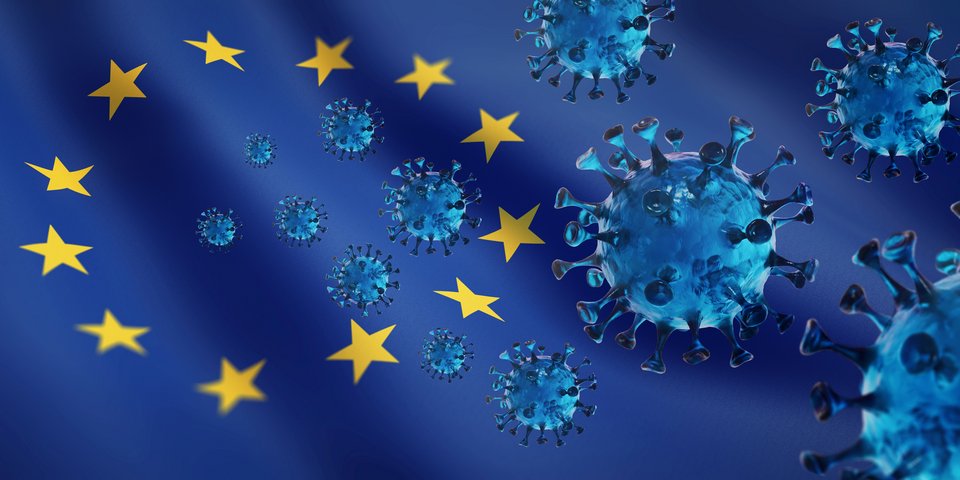 ©peterschreiber.media - stock.adobe.com
©peterschreiber.media - stock.adobe.comCorona pandemic poses major challenges for Europe
IW – 06/2020
The coronavirus pandemic is not only a stress
test for national health systems, but also for Europe. The losses caused by the
coronavirus crisis have been massive, most tragically with the thousands of
people who have lost the fight against COVID-19. But Europe is also losing
wealth and jobs, and the economic consequences of the pandemic will be
dramatic. A united Europe is even more important during the crisis than in
normal times.
European cohesion and solidarity are expected
not only from the Member States, but also from European citizens. Europe must
therefore find a way out of the crisis that will make it more sovereign, more
supportive and stronger in the eyes of European citizens.
Thus, the focus in the coming months will be on
taking away more lessons from the crisis. Do we need stronger EU disaster management?
How can the joint procurement and production of essential medical supplies be
improved? These are questions that are being discussed at length in Brussels
and the Member States. We will also have to be prepared for a discussion about expanding
the European Union’s competences in certain areas. These types of debates are
put on the political agenda after every crisis that Europe has had to overcome.
European Commissioner for Health, Stella
Kyriakides, has already announced that it will be necessary to discuss the EU’s
competences in the field of health in the future, especially given the
criticism that the EU Commission has received concerning how it has dealt with
the crisis. When it comes to health and safety policy initiatives in emergency
situations, such as the fight against the coronavirus, the EU Commission can do
no more than coordinate. That is why the Member States must work much more
closely together on this very issue. In contrast, the Commission has far more scope
when it comes to ‘money’ and mitigating the economic consequences. The Finance
Ministers from the Member States have agreed on European aid programmes using
the European Investment Bank and the European Stability Mechanism. Europe has
provided unprecedented levels of financial aid to support the Member States.
Discussions on an economic and social reconstruction plan will certainly be
front and centre in the coming months. Germany and France, at least, have now
proposed a programme worth €500 billion.
Germany will no doubt try to drive this
proposal forward in the second half of the year. The German presidency of the
Council begins on 1 July and ends on 31 December. One thing is certain: it will
be different presidency from what was originally planned. The organisational
challenges alone will be enormous. There are only a limited number of meeting
rooms in the Brussels Council building in which the 1.5 m distance requirement can
be observed. Physical meetings can, of course, be replaced by video
conferences, but these also have their limitations. Most significantly, there
are probably very few digital solutions that can replace the kind of face-to-face
or confidential discussions that are often so important in the world of
politics.
Germany is also in the process of adapting the
topics for its programme. Some of the original priorities will be put on the
backburner, while others will move to the top of the agenda. Platform work is one
of the topics that will not be dealt with comprehensively at European policy
level again until 2021. However, a stronger European minimum social security
policy is something that might possibly be pursued under the German presidency
of the Council. One of the issues at stake is poverty avoidance. The focus on digitalisation,
which Germany had already set, will also be kept. The difficult Brexit negotiations
and the EU budget will have to be continued under the German presidency. In
addition, safeguarding supply chains and returning the production of pharmaceuticals
and medical products back to Europe soil will also play a role.
Commentary
by Ilka Wölfle, Director of the European Representation of the German Social Insurance
Source: DGUV forum 04/2020
